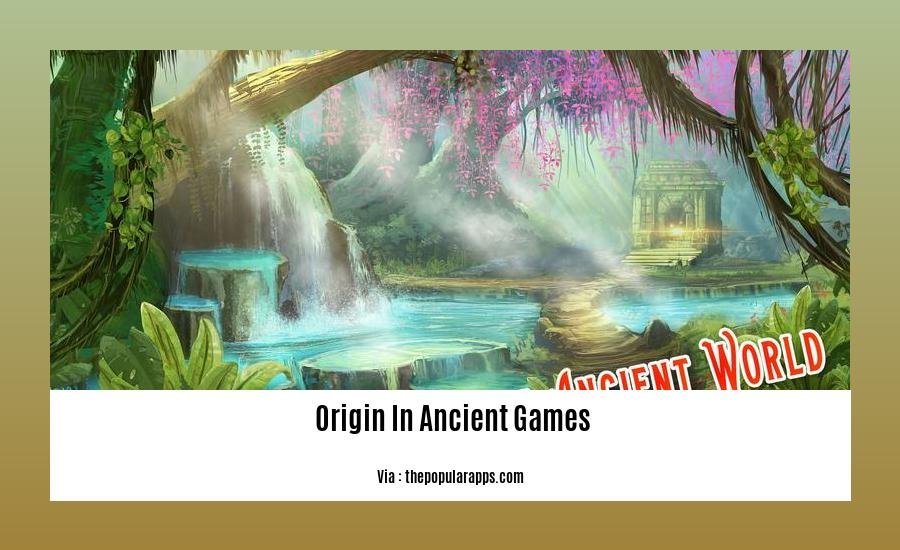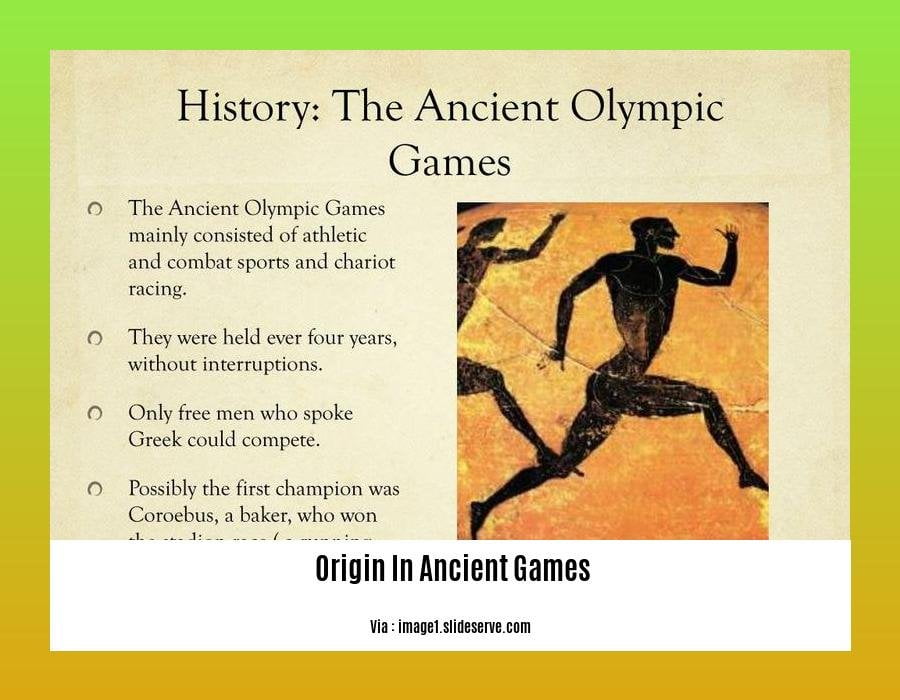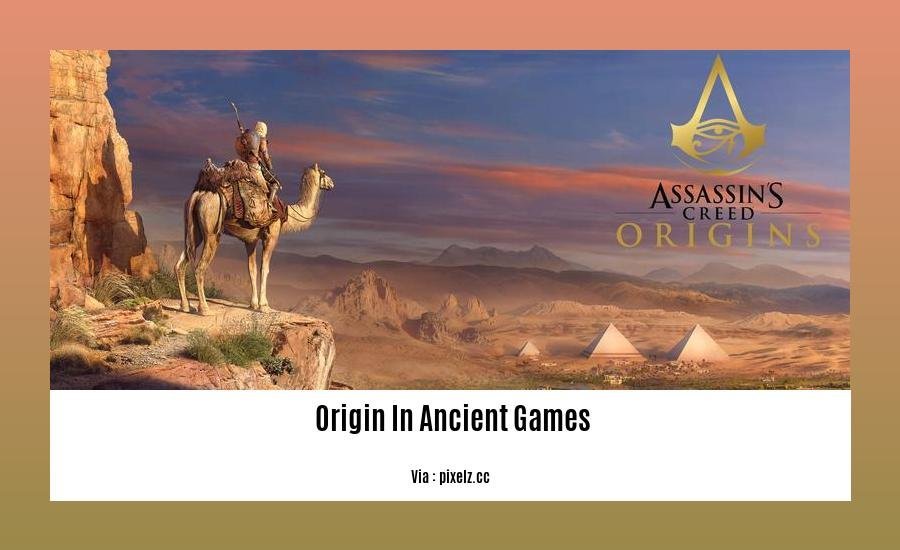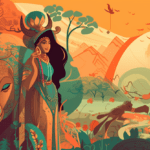Dive into the captivating history of gaming as we trace its roots back to ancient civilizations. From the earliest board games to the technologically advanced virtual worlds of today, games have played a pivotal role in shaping human culture and entertainment. Join us as we uncover the origins of games, exploring their evolution and the profound impact they have had on our society. [- The Origins of Games in Ancient Civilizations]
Key Takeaways:
- Archaeological findings indicate ancient games in Europe, Egypt, and the Indus Valley during the Bronze Age.
- Early Bronze Age tokens represent the earliest known ancient games.
- Board games possibly originated in the ancient Near East.
- India had various games in ancient times, such as dice and board games.
- Evidence of ancient games can be found in East Asia, Africa, the Americas, and Europe.
Origin in Ancient Games:

Archeological evidence reveals that games have existed since the Bronze Age, with early examples found in Europe, Egypt, and the Indus Valley. The earliest known ancient games are Bronze Age tokens, suggesting that games may have emerged from simple counting or recording mechanisms.
Board games likely originated in the ancient Near East, with some of the oldest examples dating back to around 3500 BCE. These games often involved dice or other random elements, and their gameplay mechanics have influenced many modern games.
India was also a hub of ancient game development, with various dice games and board games popular during the ancient period. Games like Chaturanga (an early form of chess) and Pachisi are still played today.
Ancient games have also been discovered in East Asia, Africa, the Americas, and Europe, showcasing the global nature of gaming. From the sophisticated strategy games of ancient China to the physical skill-based games of the ancient Maya, the diversity of ancient games reflects the ingenuity and creativity of human cultures throughout history.
Uncover the illustrious heritage of badminton and its captivating journey by delving into its rich history. Discover the remarkable development in England, the birthplace of this beloved sport, that shaped its evolution here. Explore the prestigious Badminton World Federation, the global governing body that oversees the sport’s regulations and competitions.
The Technological Evolution of Gaming
Board games have a long and rich history, dating back to ancient times. The earliest board games, such as Senet, were played by royalty and nobles.
Over time, board games have evolved, with new variations and innovations being developed. The introduction of new technologies, such as printing, has also played a role in the evolution of board games.
Modern board games, such as Monopoly and Dixit, are enjoyed by people of all ages around the world. These games often incorporate complex rules and strategies, and they can provide hours of entertainment.
Key Takeaways:
- Board games have been around for centuries.
- Board games have evolved over time, with new variations and innovations being developed.
- Modern board games are enjoyed by people of all ages around the world.
- The introduction of new technologies has played a role in the evolution of board games.
Relevant URL Sources:
- The Evolution of Board Games: From Royal Pastimes to
- 12 Ancient Board Games From Around The World
The Role of Games in Education and Entertainment

Since Plato’s time, games have been vital in education, facilitating knowledge and comprehension. They captivate and engage players, boosting retention and motivation. From strategy board games to immersive video games, games have become indispensable learning tools. This article explores how games enhance education and entertainment, their enduring legacy, and their impact on modern gaming.
Educational Games: Nurturing the Joy of Learning
- Games present complex concepts in an enjoyable and motivating way.
- They reinforce learning, making lessons more engaging and effective.
- By fostering collaboration and communication, games prepare students for real-world teamwork.
Entertainment and Storytelling: Games as Escapist Havens
- Games transport us to different worlds, providing respite and escapism.
- They engage our imaginations, allowing us to explore fictional realms.
- Through storytelling and character development, games foster empathy and emotional intelligence.
The Balancing Act: Challenges and Opportunities
- Balancing entertainment with educational value can be tricky.
- Accessibility and equity concerns must be addressed to ensure all learners benefit.
- Striking the right balance can create transformative learning experiences.
Key Takeaways:
- Educational Games: Enhance engagement, retention, and critical thinking skills.
- Entertainment and Storytelling: Provide escapism, foster empathy, and cultivate creativity.
- Balancing Act: Navigating entertainment and educational value while ensuring accessibility and equity.
Citations:
- What are Educational Games? | Definition, History & Benefits
- Games and play have had a role in educational theory and philosophy since at least the times of the Ancient Greeks
The Legacy of Ancient Games in Modern Gaming
From Senet’s spiritual journey to Go’s strategic battles, the legacy of ancient games in modern gaming is undeniable.
Imagine a time when dice replaced swords and boards were battlefields. Ancient games, like chess’s ancestor Chaturanga, trained minds for strategy and problem-solving. Their influence echoes in today’s games, from board classics to virtual realms.
Evolution of Board Games
Ancient Egypt: Senet, a race to the afterlife, inspired the game’s spiritual significance.
Ancient Mesopotamia: The Royal Game of Ur introduced dice and capture mechanics, paving the way for strategy games.
Ancient India: Chaturanga, the forerunner of chess, taught military strategy and logical thinking.
Ancient China: Go’s complex strategies and vast board continue to challenge and fascinate.
Ancient Greek and Roman Games
Petteia: A Greek game similar to checkers, showcasing the influence of geometric shapes and tactics.
Ludus Latrunculorum: A Roman game resembling chess, fostering strategic planning and visualization.
Alea: A popular dice game in ancient Rome, emphasizing randomness and risk-taking.
Key Takeaways:
- Ancient games laid the foundation for modern gaming mechanics, such as strategy, randomness, and skill-based play.
- They fostered intellectual development and social interactions, skills transferable to contemporary games.
- The enduring popularity of ancient games showcases their timeless appeal and the enduring human desire for entertainment and competition.
Citation:
FAQ
Q1: When and where did the earliest known games originate?
A1: Archaeological evidence suggests that the earliest known games, such as the Early Bronze Age tokens, emerged in Bronze Age Europe, Egypt, and the Indus Valley around 3500 BC.
Q2: What is the significance of ancient board games?
A2: Board games, like Senet and the Royal Game of Ur, played a vital role in ancient societies, serving as a form of entertainment, a symbol of status, and a tool for religious rituals.
Q3: How did India contribute to the history of ancient games?
A3: India has a rich gaming history, with evidence of dice games and board games like Chaturanga, the precursor to chess, originating in ancient India.
Q4: What is the connection between games and education in ancient civilizations?
A4: Plato believed that play was essential for true knowledge, highlighting the use of educational games in ancient times. Games facilitated learning by providing a motivating and engaging experience.
Q5: How did ancient games influence the development of modern games?
A5: Ancient games laid the foundation for many modern games we enjoy today. Board games like chess and Go evolved from their ancient counterparts, while concepts like dice rolling and race tracks can be traced back to early games.
















